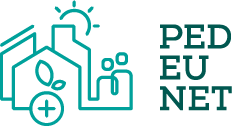PED Planning, Design, and Implementation
Why should I take this course?
Positive Energy Districts (PEDs) are seen as a stepstone towards climate neutrality, its rapid development in the last few years have been strongly propelled by the EU’s ambitious Strategic Energy Technology Plan (SET Plan) and the successive Horizon R&I frameworks. Through the numerous projects, initiatives and activities that took place in recent years, a rich body of knowledge and know-how has been generated.
The COST Action Positive Energy Districts European Network (PED-EU-NET) was created in 2019 as an open collaboration network dedicated to synergising PED development across Europe. With over 250 members, who are active in PED development at both national and Europe levels, PED-EU-NET has a wide reach to the latest knowledge and innovations concerning PEDs in both technical and non-technical terms. This lecture series covering the planning, design and implementation of PEDs is a collection of experiences from the PED-EU-NET Academy Trainers, who are experts in their field.
The lecture series sets the scene by introducing the key concepts, challenges, barriers and enablers of PEDs. It presents the technologies and digital tools that are essential to facilitate PED planning, design, and implementation, and shares insights of existing PEDs from technological, environmental, social, governance, and economic perspectives. This lecture series aims to equip researchers and practitioners with the knowledge needed to embark on their own PED journey. We hope it will inspire a new PED generation, who will contribute to the making of climate-neutral cities across Europe.
PED-EU-NET Academy Trainers
Maria Beatrice Andreucci
Siddharth Sareen
Marco Delli Paoli
Jimeno Fonseca
Paolo Civiero
Beril Alpagut
Matthias Haase
Thaleia Konstantinou
Savis Gohari
Giulia Turci
Michal Kuzmic
PED-EU-NET MOOC Curators
Vicky Albert-Seifried
Nienke Maas
Maria Beatrice Andreucci
Research Professor in Environmental Technological Design



